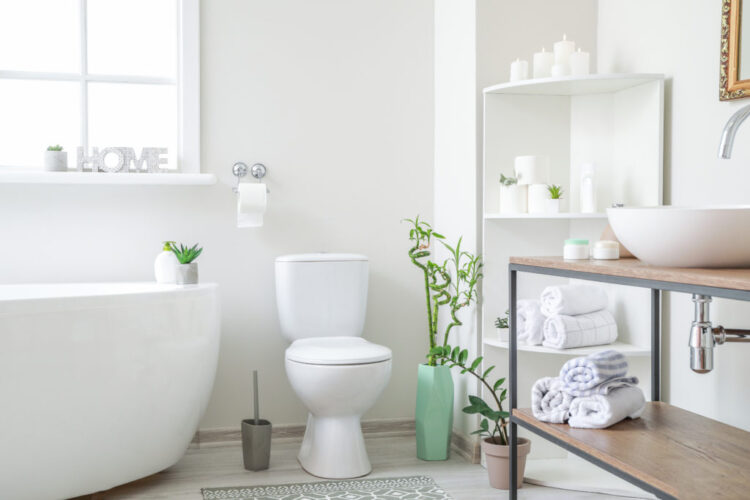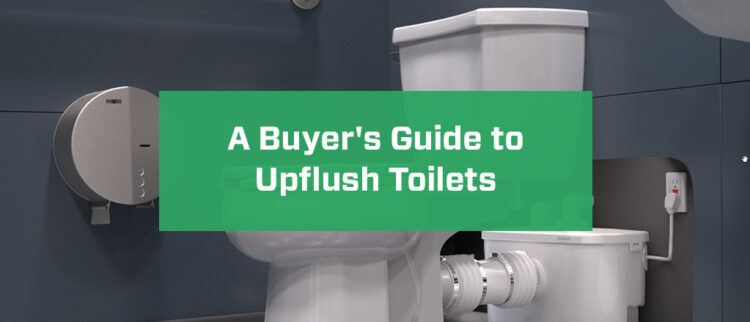
Did you know that one inch of water due to flooding can result in $25,000 worth of damage to a home? With the potential devastation of flooding being so high, it’s important to protect your property and prepare for any emergency scenario.
If water does sneak into your house, your basement is at a high risk. Gravity pulls water from high to low ground, making your basement the place where inches — or even feet — of water will sink. Often, the only protection your basement has against flooding is a sump pump.
To prepare for the next big storm or natural disaster, it’s a good idea to keep your sump pump running during a power outage so it’s there when you need it most.
What Is a Sump Pump?
A sump pump moves water from your basement to a place outside of your home. When a sump pump is installed, a contractor will dig a small hole in your basement floor and place it inside. The sump pump will use a dispatch line to redirect the water to a designated spot. When choosing a drainage area, make sure you select a spot over 10 feet away from your home’s foundation.
But how does a sump pump know when there is excess water? It has a switch that can sense rising water levels. If the pump senses that the water is too high, the switch activates and the sump pump automatically begins to drain water out of your basement. A sump pump can either be run by electricity, water or a battery.
Why Should You Buy a Sump Pump?
The most obvious benefit of getting a sump pump is that it can protect your basement from flooding. In addition to lowering your home’s risk of flooding, a sump pump can also:
- Prevent sewage backups
- Lower humidity levels in your basement
- Reduce the risk of mold and mildew growing
- Improve air quality
- Lower the risk of water-caused electrical damage
- Prevent wood rot
When Does a Sump Pump Stop Working?
Here are some of the most common reasons why even a high-quality sump pump might fail.
Power Outage
If you have a sump pump that is powered by electricity, a power outage could cause it to stop working. Power outages can occur due to many different events. If an outage is caused by a heavy storm, your electric sump pump may not be able to protect your house when you need it the most.
Switch Malfunction
One of the most common mechanical failures that a sump pump is prone to is switch malfunction. When the switch fails, it will either be stuck in the “on” or “off” position. If this happens, the sump pump will be continuously running or continuously off. While this is a common mechanical failure, it is also a relatively simple, cheap fix that only involves replacing the switch.
Motor Burnout
If your sump pump runs continuously, it will overheat, and the motor will burn out. This may happen for two reasons:
- The sump pump is overworked because it has a low-quality or undersized pump.
- It has a motor that is too small to handle the amount of water it receives.
Damaged Discharge Piping
If your discharge piping is damaged or undersized, it could cause the motor to work harder, eventually leading to motor burnout.
Age
Even the best sump pumps do not last forever. The average life span of a sump pump is 7-20 years. If yours is constantly running, its life span is shorter — usually 5-7 years. As your sump pump ages, it will be at a higher risk of breaking down.
What To Do if Your Sump Pump Fails?
If your sump pump ever fails and your basement is at risk of flooding, you should:
- Move furniture to a dry spot.
- Unplug any electronics.
- Remove the excess water with any tool you have, like a mop, battery-powered sump pump, hand pump or wet/dry vacuum.
- Use fans and dehumidifiers to dry your basement.
- Rip up carpet and padding.

Ways to Prevent Sump Pump Failure in the Future
To prevent a sump pump malfunction from occurring, it’s crucial to regularly check and clean the parts. In addition to this regular maintenance, you should also have a backup plan in place in case the power goes out. Consider implementing one or more of these options.
Purchase a Backup Generator
One possible way to keep a sump pump running during a power outage is to buy a backup generator. You can get either a manual start fuel generator or an automatic standby generator. At the same time, you may need an extension cord to run a generator. Take safety precautions if choosing this option since an extension cord can be a tripping hazard.
Install a Water Alarm System
If you install a water alarm system, it will sound when the water level in your sump pump is too high. When you hear the alarm, you will know to bring out your backup option. Your backup plan may be a second pump, a wet/dry vacuum, or a manual water-removal technique.
Buy a Battery System
A sump pump battery backup will allow the sump pump to run with no power. The battery system will detect when the power goes out and begin to run. The sump pump can then run off battery power rather than electricity for a limited amount of time.
Invest in a Battery-Operated Sump Pump
Unlike a battery system, a battery-operated sump pump is a backup sump pump that will turn on during an outage. Powered by batteries, this sump pump can work as expected even when the lights go out. When the power comes back on, it will stop running.

Choose Star Water Systems for Backup Sump Pumps and More
Heavy storms, hurricanes and other weather events can often be unexpected. To prevent flooding in your basement during a power outage, it’s important to have an emergency plan in place. Star Water Systems offers Basement Sentry backup pumps, including a water-driven option and battery-powered option to keep your basement flood-free.
To find a system that will work for you, browse our online inventory or find a retailer near you. If you have any questions, contact us today!


